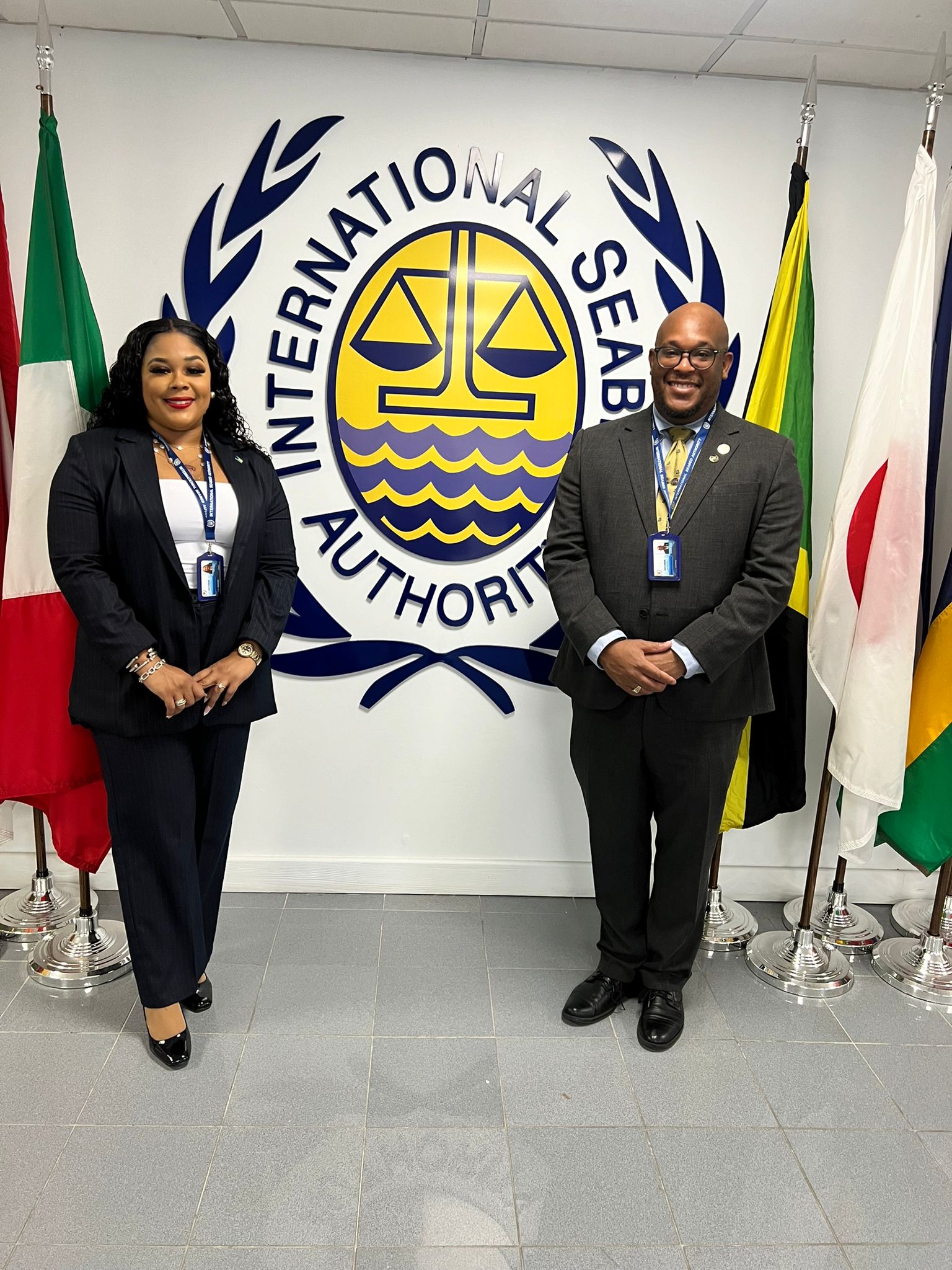The Bahamas Attends the International Seabed Authority (ISA) Council Part II Under Its 29th Session
Two Bahamians are currently in Kingston, Jamaica, where the International Seabed Authority (ISA) Council has reconvened for Part II of its 29th Session.
Representing The Bahamas are: Mr. Shannon Anthony Bethel, Foreign Service Officer of the Maritime and Oceans Affairs Bureau from the Ministry of Foreign Affairs and Ms. Anya Allen, Senior Counsel from the Office of the Attorney General and the Ministry of Legal Affairs.
During this Session, which will take place from 15th – 26th July, member states will continue to focus on the draft regulations for the exploitation of the mineral resources in the Area, among other issues.
While the scope of the regulations’ potential application fall outside the national jurisdiction of any country, the outcome of the process will nevertheless have implications for The Bahamas and small island developing, coastal states as the impacts of deep sea mining on biodiversity remain unclear.
The Council, as ISA’s executive body, oversees the regime established by UNCLOS to regulate deep-sea mineral exploration and exploitation by States, corporations, and other entities. To this end, the Council’s responsibilities include drafting contract terms, approving applications, ensuring contract compliance, and setting environmental and operational standards.
Directly following the Council meetings, the Assembly, which includes all member states will meet from 29th July to 2nd August, to consider the Council’s recommendations and elect a Secretary-General.
About ISA
The International Seabed Authority (ISA) is an autonomous intergovernmental organization mandated by the United Nations Convention on the Law of the Sea to manage the mineral resources of the seabed beyond national jurisdiction for the shared benefit of humankind. ISA is committed to the principle that all economic activities in the deep seabed, including deep-seabed mining, must be regulated and responsibly managed using the best available scientific evidence for the benefit of all nations of the world. ISA works to ensure that the voices of all States, including developing States and other stakeholders, are effectively heard in discussions around the sustainable development of the deep seabed.
-END-

